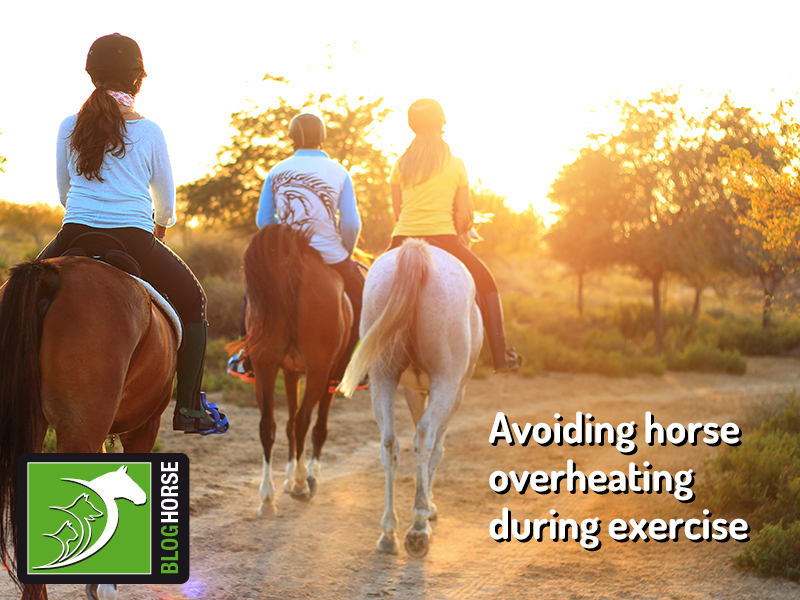
Avoiding horse overheating during exercise

The heat is back on, summer is in full swing and horse owners are faced with a difficult challenge.
How do you keep up with exercise and work needs in this hot weather?
During this time, heat stress is a significant concern for all owners, and it's vital to keep monitoring your horse's hydration status and workload. There are several factors to consider when evaluating if and when you should ride out with your horses to avoid dehydration and overheating.
Temperature and humidity
High temperatures by themselves are already something to be cautious about, but when mixed in with high humidity, the combination can get truly dangerous, fast.
Damp heat makes it harder for a horse to regulate its body temperature by evaporating sweat, and so, this puts the animal at risk of heat stress.
Hydration
If you've ever wondered why the phrase "sweat like a horse" exists, then this section will clear it right up.
Like us (and unlike dogs or cats), the primary method of losing heat is through sweating. Because of their size, they can lose around 10 to 12 litres of water every hour just by sweating. This means that dehydration through continued losses from sweat can and will happen if you're not careful.
Something else that might happen is that, due to the chemical nature of their sweat, horses might not feel thirsty after sweating. In practical terms, your animals could be dehydrated, but they will not seek out water to drink.
So... back to our first issue!
How can I help my horses exercise without harmful heat stress?
- Consider skipping a training day if the weather is overly hot or damp;
- If work is necessary, try to ride during the cooler hours of the day;
- Make sure that your horse is drinking and always has available water sources;
- Running cool water over the body after exercising is a great way to help lose heat but make sure to keep a good flow so there's always cooler water on them;
- Avoid overly cold water as it might cause the blood vessels to constrict, making heat loss less efficient;
- Shaded, well-ventilated areas are great spaces to help your animals cool down, especially if there are fans near them;
- Check if your transportation unit is adequate for hot temperature travel and, if it's not, travel during the cooler hours.
These are some of the quick, practical things you can implement during this time of the year but, if you need any help or feel there is something wrong, don't hesitate to contact your vet.
Published: 05 Aug 2020
Read the previous article: Your pet and the vet

